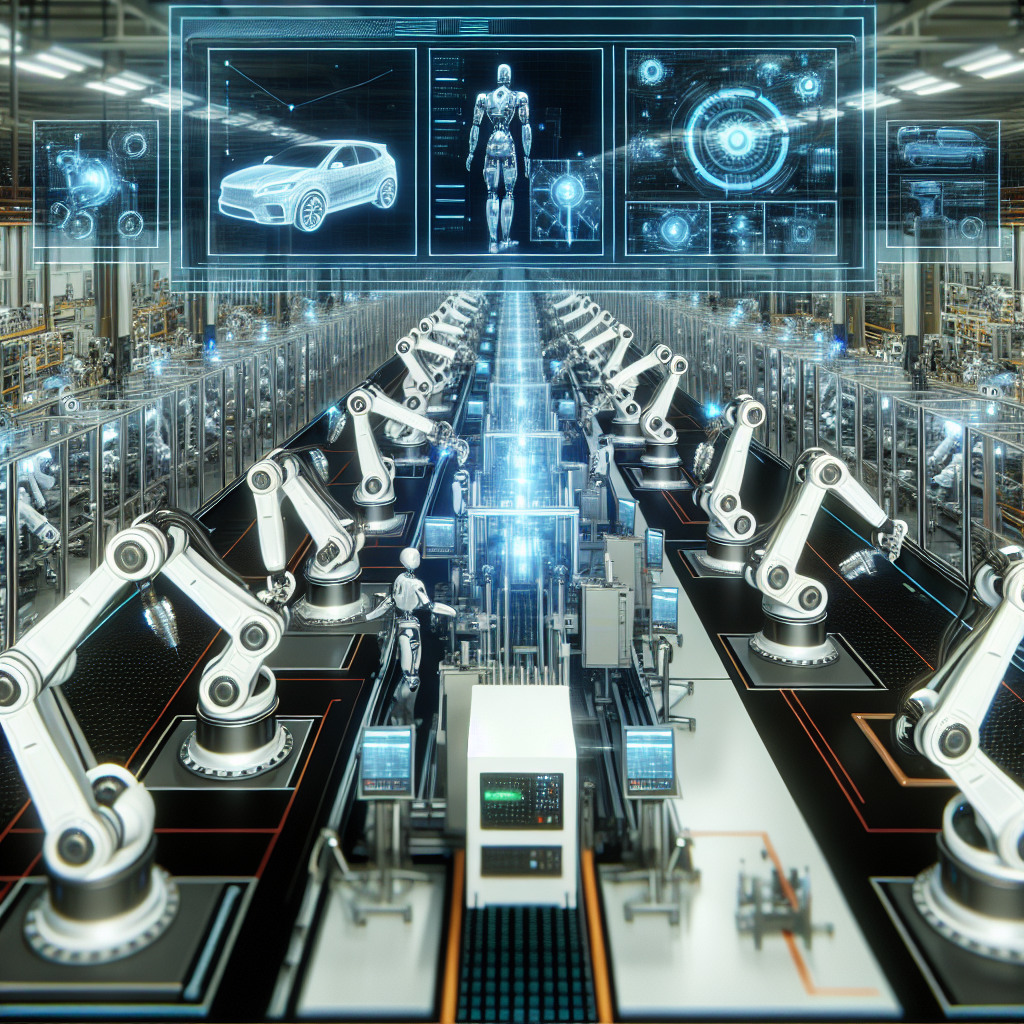In today’s fast-paced manufacturing industry, traceability and trackability are essential components for ensuring product quality, maintaining compliance with regulations, and achieving operational efficiency. With the advancement of artificial intelligence (AI) technology, manufacturers are now able to leverage AI-driven solutions to enhance traceability and trackability throughout the production process.
AI-driven traceability and trackability systems utilize advanced algorithms to collect, analyze, and interpret data from various sources such as sensors, cameras, and production equipment. This allows manufacturers to track the movement of raw materials, components, and finished products in real-time, providing valuable insights into the production process and enabling quick identification and resolution of issues.
One of the key benefits of AI-driven traceability and trackability in manufacturing is the ability to improve product quality and safety. By tracking each component throughout the production process, manufacturers can quickly identify any defects or anomalies and take corrective action before they impact the final product. This not only helps to reduce the risk of product recalls but also improves overall customer satisfaction and brand reputation.
Another important aspect of AI-driven traceability and trackability is its role in ensuring compliance with regulations and industry standards. By capturing and storing data on the production process, manufacturers can easily demonstrate compliance with regulatory requirements and provide documentation to auditors and regulators when needed. This not only helps to avoid costly fines and penalties but also ensures the long-term sustainability of the business.
In addition to improving product quality and compliance, AI-driven traceability and trackability systems also play a crucial role in enhancing operational efficiency. By analyzing data on production processes, manufacturers can identify areas for improvement, optimize workflows, and reduce waste. This ultimately leads to cost savings, increased productivity, and a competitive edge in the market.
Moreover, AI-driven traceability and trackability systems can also help manufacturers to better manage their supply chain and inventory. By tracking the movement of raw materials and components, manufacturers can optimize inventory levels, reduce lead times, and improve forecasting accuracy. This not only helps to minimize stockouts and overstock situations but also ensures timely delivery of products to customers.
Overall, AI-driven traceability and trackability have become indispensable tools for manufacturers looking to stay ahead in today’s competitive market. By harnessing the power of AI technology, manufacturers can improve product quality, ensure compliance with regulations, enhance operational efficiency, and optimize their supply chain.
FAQs:
Q: What is the difference between traceability and trackability in manufacturing?
A: Traceability refers to the ability to track the movement of products or components throughout the production process, while trackability is the ability to trace the origin and history of a product or component. Both are essential for ensuring product quality, compliance, and operational efficiency in manufacturing.
Q: How does AI technology improve traceability and trackability in manufacturing?
A: AI technology enables manufacturers to collect, analyze, and interpret data from various sources in real-time, allowing them to track the movement of products and components, identify issues quickly, and make data-driven decisions to improve operational efficiency.
Q: What are the key benefits of AI-driven traceability and trackability in manufacturing?
A: Some key benefits of AI-driven traceability and trackability in manufacturing include improved product quality and safety, compliance with regulations and industry standards, enhanced operational efficiency, and better supply chain management.
Q: How can manufacturers implement AI-driven traceability and trackability systems in their operations?
A: Manufacturers can implement AI-driven traceability and trackability systems by investing in AI technology, integrating it with existing production equipment and systems, and training employees on how to use the technology effectively.
Q: What are some challenges associated with implementing AI-driven traceability and trackability in manufacturing?
A: Some challenges associated with implementing AI-driven traceability and trackability in manufacturing include the high cost of technology implementation, data privacy and security concerns, and the need for skilled personnel to manage and interpret the data generated by AI systems.

